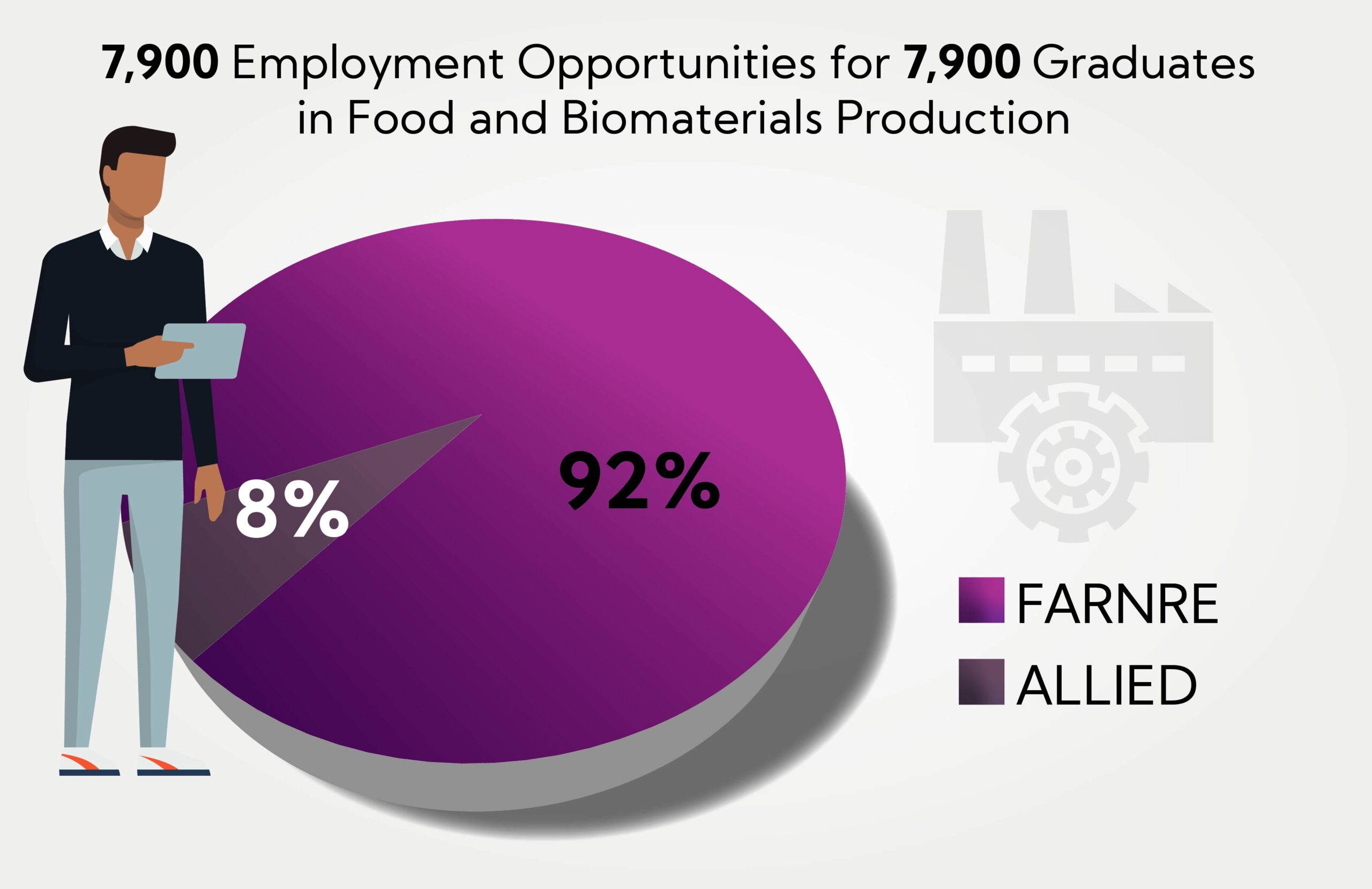Food and Biomaterials Production
The Food and Biomaterials Production cluster includes occupations that focus on the production of commodities used as food or biomaterials. This also includes occupations in forest production, renewable energy and environmental management.
In the United States between 2020 and 2025, expect an average of 7,900 annual job openings for new graduates with a focus on Food and Biomaterials Production; and 7,900 graduates with degrees and expertise in food and biomaterials production entering the food agriculture, renewable natural resources and environment workforce. Approximately 13% of all food, agriculture, renewable natural resources and environment-related position openings are in Food and Biomaterials Production, making it the smallest of the four employment clusters. College graduates with degrees from institutions offering food, agriculture, renewable natural resources and the environment programs will fill 92% (7,300) of the annual openings, with the other 8% (600) filled by graduates from allied fields of study. Employers in this cluster value and seek graduates with practical experience.
[Figure 5. Approximately 7,900 Annual Employment Opportunities in Food and Biomaterials Production, and a Total of 7,900 Qualified Graduates Entering the Workforce]
Observations and Trends
Strong job opportunities are expected to continue for agronomists, horticultural specialty crop scientists and consultants, and pest management specialists, particularly for graduates with practical experiences.
The continuing consolidation and integration of agricultural and renewable energy production will contribute to fewer openings for traditional farmers and ranchers; however, some increased entrepreneurial business opportunities are available in organic, local and niche market food production.
Expect continued opportunities in managerial and specialty positions in commercial and intensive livestock and poultry industries, particularly in the swine, dairy, feedlot cattle and poultry (layer and broiler) sectors.
Graduates with expertise and strengths in agroecology – integrated plant, soil and weed science – will be in demand.
Expect growth of available positions in containment or enclosed climate-controlled agriculture, including hydroponics and aquaculture.
Growing interests in urban agriculture, forestry, horticulture, development, and maintenance and design of recreational green and landscaped spaces, as well as wildlife and conservation areas, should result in a growing number of specialized positions and entrepreneurial opportunities.
Anticipate continued interest and growth in local foods and products, including medicinal products, specialty culinary products and craft beverages, resulting in greater employment and entrepreneurial opportunities.
Biomaterials and bioenergy procurement, engineering and manufacturing fields will continue to seek qualified graduates.
Graduates with expertise in navigating and interpreting large data sets – data scientists, analysts, statisticians, etc. – will be in demand.
Expect fewer employment opportunities requiring bachelor’s and higher college degrees for the following jobs: animal caretakers, citrus crop managers and processors, environmental managers, ranchers and farmhands, landscape managers and ornamental horticulturalists, park rangers, and wildlife managers.
